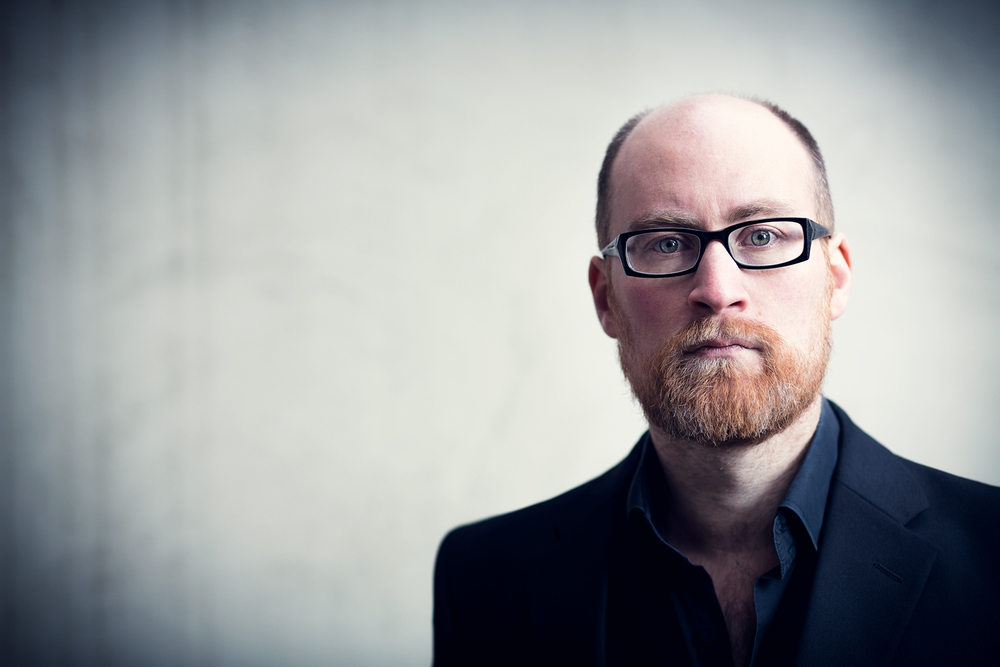To attract wider audiences orchestras and concert halls often use musical “lollipops” to pull in an audience. Today’s programme for the RSNO is full of lollipops, many related to films, and it has worked: the Usher Hall is very full, and there are a lot of young people here. This is undoubtedly due to the clever programming—the headline item is Holst’s Planet Suite, played against a backdrop of films about the planets, many taken from NASA footage. The RSNO are out in full force for this final concert of the season, with over ninety musicians on stage. They are under the very precise direction of conductor Ben Palmer, who has a wide experience of the concert halls and opera houses of Europe, but is also a specialist in conducting live to film.
The concert begins quietly with the opening chords of Richard Strauss’s Also sprach Zarathustra, which is memorably used to accompany the opening of Stanley Kubrick’s great film, 2001: A Space Odyssey. This is followed by Johann Strauss’s famous waltz The Blue Danube, which is also heard in its entirety in Kubrick’s film (Kubrick explaining that the slowly spinning spaceships reminded him of waltzing dancers). Both works provide a splendid musical opening to our film-themed concert, and the RSNO players enjoy the wide range of musical challenges they offer.
Next, we have the famous Toccata and Fugue in D minor by Bach, which has been widely used in film, notably in 20,000 Leagues Under The Sea and The Phantom of the Opera, but perhaps most famously in Walt Disney’s Fantasia, a film which brought many people to classical music. This afternoon’s version was arranged for the orchestra by the great conductor Leopold Stokowski, who conducted The Philadelphia Orchestra for Disney’s film.
The next work, John Adams’s Short Ride in a Fast Machine sounds as if it should be written for a film, but in fact was written for the concert hall. Adams is a minimalist composer, and nothing is more minimalist than the opening click of a strike on a wooden block that drives the work throughout, but is quickly added too by the rest of the orchestra in an exciting way.
The next work is Beethoven’s Seventh Symphony, which could never be described as a lollipop, but this afternoon we are only given the second movement, so perhaps that qualifies. The combination of dread and beauty in this movement makes it a natural for film, and it has been used in Alex Proyas’s 2009 film, Knowing, in X Men: Apocalypse and in John Boorman’s Zardoz.
The final work in the first half, for the younger people in the audience (and there are a lot of them) is John Williams’s music for Star Wars. George Lucas was originally going to use classical music for the film, but Steven Spielberg had used Williams on Jaws and persuaded Lucas that Williams should write the music to accompany Star Wars. The result is one of the greatest movie soundtracks ever made, and played by the RSNO today, it takes us back to the excitement of the film.
After the interval there is only one work, Holst’s The Planets, but this is broken into seven planets, seven tunes, and indeed all of them are lollipops! Holst was very into mysticism and spirituality including astrology, and The Planets is not so much about the physical characteristics of the planets as their astrological meaning. The accompanying film complements the music with spectacular shots of the planets, including detailed shots from the Mars Explorer. This was produced and directed by Duncan Copp, who is a professional astronomer as well as a film maker, and has made many of the best movies about space over the years. His film, projected onto a big screen behind the orchestra, gives an extra dimension to the concert and greater meaning to the wonderful music of Holst.
The concert is a great success overall—the whole thing is great fun—and the big audience gave the concert a warm reception.
